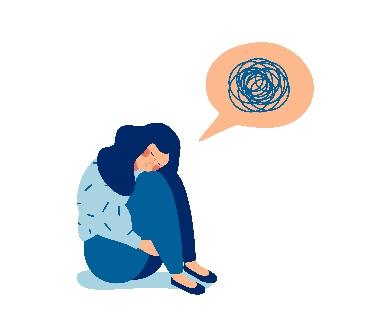Your psychological disposition determines your mental health. Good mental health gives way to a healthy mind, whereas, disturbed mental state leads to mental disorders. But not every distress may lead to Mental illness, sometimes you only need someone to “LISTEN”. That’s the moment you need a psychotherapist. Psychotherapy may not magically turn everything around, but is surely the brightest ray of hope. Here we have tried to put together all that you should know about Psychotherapy.
What Is Psychotherapy?
Our mind is a complex phenomenon built on the physical framework of the brain. We experience hell lot of emotional upheavals, moments full of—extreme joy, extreme distress. Sometimes we meltdown in the happiest moments, else, may feel a sense of extreme strength in worse situations. Psychotherapy helps you to understands all this through series of ‘talks’ and interventions that help self-awareness and changes.
Psychotherapy explores past issues like our childhood issues, or abuse, or any traumatic event that may be responsible for triggering our present-day problems. For example, when your boss is angry you may feel intense fear in your body, that you want to lock yourself up. This may be a reaction you had as a child when a parent shouted at you, and you felt the same intense fear. Psychotherapists will journey with you to your past to find patterns of similarity and assist in healing those past patterns to help you move from a position of being ‘stuck’ towards growth and change.

Our psychological disposition determines our mental health. Good positive mental vibes gives way to a healthy mind, whereas, disturbed mental state leads to mental disorders. But not every distress may lead to mental illness, sometimes you only need someone to “LISTEN” and help you process your past. That’s the moment you need a psychotherapist. Psychotherapy may not magically turn everything around but is surely the brightest ray of hope.
Psychotherapy treatment includes helping you learn about your own self. Your moods, feelings, thoughts & behaviors. It encourages you to take charge of your life and face the challenges confidently.
Psychotherapy And Mental Illness
Mental illness involves changes as a combination in our emotions, thinking and behaviour due to distress, or problems at home, relationship, work or other activities. In today’s time, mental illness is very common, around one in five experience some form of mental illness. Most individuals have high functionality in their daily lives. The good news is mental illness is usually treatable.
Psychotherapy is helpful for those who are suffering from an array of different mental illnesses, while also helping them to control negative symptoms. Depression, anxiety, and trauma can all be helped by regular psychotherapy sessions either alone or in combination with medication and/or other forms of therapy. Millions of people face the problems associated with these mental illnesses and emotional traumas every single day, which is why psychotherapy is so important in the fight against negative symptoms. This guide has been specifically designed as a one-stop-shop for all the need-to-know information on psychotherapy.
Does Psychotherapy Actually Work?
Of course, one of the most important and asked questions regarding this subject is, does psychotherapy actually work? According to the American Psychological Association, almost 75 per cent of those who enter into psychotherapy reap some form of benefits, often in the form of symptom relief. A tremendous amount of research studies has demonstrated the effectiveness of psychotherapy. In one large study of 2,400 people receiving psychotherapy once a week, about 50% showed significant improvement after two months and about 75% after six months. The majority of people with severe problems needed a year to feel significantly better (Howard, Kopta, Krause, & Orlinsky, 1986).
A 1995 Consumer Reports survey of 4000 people who had recently participated in psychotherapy found that almost 90% of people who felt “very poor” when they started therapy felt substantially better (“so-so” to “very good”) after getting help. Those who were most upset, to begin with, reported the most improvement. This survey also found that psychotherapy lasting more than six months was associated with more progress than shorter-term therapy.
Psychotherapy has long since been linked with healthy and positive change, both in the mind and body of the patient. It has also been proven that patients of psychotherapy experience a decreased number of sick days, fewer medical problems, and an increased sense of work satisfaction. As explained by Karlsson in the 2011 text, How Psychotherapy Changes the Brain, experts have been able to monitor psychotherapy-induced changes in the brains of patients by using imaging techniques. In most cases, the brain changes in those suffering from depression, anxiety, PTSD, and more were similar to those seen in medication treatments.
These general numbers may or may not match your specific experience. Your particular outcome will depend on many factors, including the severity of your symptoms, the “fit” between you and your therapist, the effort you put into trying to get better, and the levels of stress and support you have in your daily life.
Don’t believe anyone who “guarantees” that psychotherapy will work for you.
On the other hand, if you’re going through a rough time in your life, there are plenty of reasons to be optimistic and take a plunge into psychotherapy.
What Makes a Good Psychotherapist?
A psychotherapist has a number of different roles to fill throughout the process. It is important to find a psychotherapist who has sufficient experience in your particular branch of mental health and can confidently cater to your needs. For example, if you suffer from PTSD or anxiety, you should most likely seek an EMDR specialist. Of course, the psychotherapist must also have professional training and proof thereof. A good psychotherapist should:
– Be well versed in the latest research
– Offer optimism and hope
– Have great interpersonal skills
– Build trust with the patient
– Have a set but flexible treatment plan
– Monitor the progress of the patient throughout
– Communicate with the patient throughout
Psychotherapists work with clients facing bipolar disorder, borderline personality disorder, depression, phobias, stress, anxiety, emotional/relationship problems, physical/psychosomatic disorders & behavioral problems. Activities may include:
– Performing therapy sessions in a controlled environment
– Using verbal interaction to explore behavior, attitudes & emotions
– Carrying out Hypno-psychotherapy
– Helping clients to understand and address their inner conflicts
The treatment starts with the therapist outlining a rough timeline for the client and set a few distinct goals. However, as the treatment continues, the patient should retrospect and try to determine its progress and the extent of his relationship with the therapist. This relationship-building is essential, as the clients are expected to turn to therapists in crises. I always believe that ‘contact precedes any contract/goal’ of therapy.
However, there may be instances where the relationship doesn’t develop. In such cases, you should start looking for a second opinion; of course, the earlier psychotherapist must be given a feedback on what did not work for you. This helps them to reflect and make changes if needed.
Considering the above phenomenon, psychotherapists should develop key skills, such as
– Resilient listening skills
– Observation
– Sensitivity
– Sincerity
– Discretion
– Empathy and rapport
– Positive outlook
– Excellent communication skill
How Do You Know If You Need Psychotherapy?
There are a number of reasons behind a need for a psychotherapist, especially if you have already been diagnosed with a mental health condition. If you are already on medication for your mental illness but are not feeling any improvements, psychotherapy can represent another additional form of treatment. However, if you have not yet been diagnosed and are unsure of whether you need psychotherapy, you should be on the lookout for the following tell-tale signs:
- You feel overwhelmingly sad and/or out of control.
- You feel overwhelmingly sad and/or out of control.
- You have feelings of anxiety.
- You struggle to face day-to-day challenges.
- You find it difficult to remain focused on work.
- You are using drugs/alcohol to an unhealthy level.
- You feel at risk of harming yourself.
- You feel like your situation will never improve.
- You have experienced abuse.
The American Psychological Association suggests considering therapy when something causes distress and interferes with some part of life, particularly when:
- Thinking about or coping with the issue takes up at least an hour each day.
- The issue causes embarrassment or makes you want to avoid others.
- The issue has caused your quality of life to decrease.
- The issue has negatively affected school, work, or relationships.
- You’ve made changes in your life or develop habits to cope with the issue.
If you experience any of the following emotions or feelings at extreme lengths, it will help it you make an appointment with a psychotherapist.
- Overwhelm
- Fatigue
- Disproportionate rage, anger, or resentment
- Agoraphobia
- Anxious or intrusive thoughts
- Apathy
- Hopelessness
- Social withdrawal
Psychotherapy And Medication – Can the Two Work Together?
When it comes to treatment for the likes of depression, anxiety, PTSD and other mental illnesses, it is not always a case of medication versus psychotherapy. Often is the case that medical professionals will use the two techniques in combination when treating a patient. In some cases, psychotherapy is the best course of action, while some patients respond better to medication. However, in most cases, the two combined yield more successful results than either on their own.
What Are the Different Types of Psychotherapy and How do they Differ?
There are a number of different types of psychotherapy and it is important to understand the distinctions between each one. The choice of therapy depends on the patient and what they are going through, as well as their personal preferences. However, we should also note that these types of psychotherapy treatments are not cut and dry, many therapists overlap between multiple treatment options in order to meet the needs of the patient.
1. Interpersonal Therapy
IPT is used as a short-term form of psychotherapy in which patients are taught how to highlight underlying issues. These problems can include anything from unresolved trauma to deep-rooted conflicts with family members. Once the issues are identified, the related emotions can then be expressed healthily through communication, rather than being bottled up.
Anxiety is the wave of emotions and physical responses you experience when you feel out of your comfort zone or when you feel threatened by a circumstance or person. Clammy hands, shortness of breath, and dizziness are common symptoms of panic along with a strong desire to escape.
Sounding familiar? You are likely here reading these words because you want to know how to overcome your anxiety. Perhaps you are overwhelmed by current events in your life. Or you might have battled anxiety for a number of years, and you want to find ways to lessen its impact.
You certainly aren’t alone. Millions of people battle anxiety everyday on varying scales and in differing ways. The good news? You don’t need to suffer in silence any longer. There are many powerful methods that can help you overcome your anxiety – and this guide is here to help!
2. Cognitive Behavior Therapy
CBT is when a psychotherapist teaches their patient to identify harmful behaviours, change them, and replace them with more functional alternatives. It is essentially focusing on problems and their subsequent solutions and is often used to treat depression, trauma, anxiety, and more.
3. Dialectical Behaviour Therapy
This also comes under the umbrella of CBT but is more centred around emotion regulation. Those who are suffering from chronic suicidal thoughts will often be treated with DBT, as well as those with PTSD, eating disorders, and borderline personality disorder. This form of psychotherapy resolves around taking responsibility and making positive changes in either a one-on-one or group therapy format.
4. Psychodynamic Therapy
This form of psychotherapy is founded upon the idea that mental health is influenced subconsciously by events, thoughts, and feelings experienced as a child. Therefore, the therapist works with the patient to highlight these past traumas before working through them and regaining control.
5. Transactional Analysis (TA) Therapy
Eric Berne founded TA on the basis that our early childhood experiences influence our present. TA is a psychotherapeutic method characterized by a creative combination of cognitive and psychodynamically oriented psychotherapy enriched by aspects of communication therapy (it means teaching people how to communicate constructively, without misunderstandings and psychological games. You can find more about Transactional Analysis here:
Transactional Analysis | Psychotherapy | Psychology Counselling (insightfulcounselling.com)
6. Eye Movement Desensitization & Reprocessing (EMDR) Therapy
The goal of EMDR is to achieve the most profound and comprehensive treatment effects possible in the shortest period of time, while maintaining client stability within a balanced system by working with our brain’s neural system. This therapy helps the client to identify negative experiences that have been dysfunctionally stored and are stunting and colouring the person’s present perceptions. The goal is to process these experiences to help liberate a person in the present for growth and change. Please read more on EMDR here:
EMDR Therapy, Certified EMDR Therapist in Singapore (insightfulcounselling.com)
7. Psychoanalysis
This is essentially the exact same as psychodynamic therapy but more intensive. For example, the psychoanalysis sessions normally occur at least three times per week.
8. Supportive Therapy
Rather than directly teaching, supportive therapy involves the therapist encouraging the patient to develop their own resources. Allowing the patient to take control of their therapy, as well as their overall life, is designed to promote confidence and self-esteem, while reducing anxiety.
9. Animal-Assisted Therapy
This is often used alongside one of the main psychotherapy techniques and involves the use of animals to bring a sense of comfort to proceedings. This may come in the form of a dog walk, riding horses, or petting cute animals and is said to reduce stress and trauma.
10. Creative Arts Therapy
This is when a therapist uses one of the arts to assist in psychotherapy, whether it be poetry, music, art, dance, or drama.
There is a articles which shows how creative therapy work.
11. Play Therapy
This is a technique used on child patients in order to get them to open up and talk about their feelings during psychotherapy.
What Are the Benefits of Psychotherapy?
Psychotherapy helps people overcome pain from their past life and develop strength & skills to cope with the issues they face. It encourages people to define their goals.
Some important benefits of Psychotherapy include its assistance in
- Overcoming harmful extreme Obsessions / Compulsions
- Identifying triggers
- Learning healthy coping mechanisms
- Managing Relationships
- Feel oneself physically healthier
- Improving self-reliance
What Are the Risks and Cautions of Psychotherapy?
Potential risks do associate with psychotherapy as well. People may not relate initially or may find it worthless. Rare are the times when people may have thoughts about wanting to hurt themselves or end their lives. When this happens, your therapist will be able to help you understand and cope with these feelings safely.
It is always essential for you to be transparent towards your therapist, whether you are having any frightening or dangerous thoughts or feelings or if you are considering harming yourself or someone else.
Some clients develop strong feelings about their therapists. This is especially true in longer therapies. Such feelings are normal, even if sometimes uncomfortable or confusing. One rule—talk it out!
Therapy can complicate your life. It can bring about changes in your behavior and make you introspect. It may change your lifestyle, your relationships. Of course, your therapist will help you through it.
Psychotherapy is not free and can cost you financially. Usually, if you have health insurance, it will pay some portion of the fee. You should speak to your insurance agent before starting the therapy.
Conclusion
Psychotherapy is a professional relationship between you and your therapist devoted to your well-being and psychological healing. Relieving your emotional pain, reducing your symptoms, improving relationships, or changing your behavior or lifestyle may be parts of that goal. Reach out to us to get one-stop solution for all of your queries regarding Psychotherapy and how it can benefit you to lead a better lifestyle.












